92 percent of Icelanders believe that the fishing company Samherji paid millions of dollars in bribes to a group of politicians and their cronies in Namibia in exchange for fishing quotas. The case is known in Namibia and internationally as the Fishrot case. Only 8 percent of Iceland's population believes that Samherji did not use bribes to secure itself access to the fishing quotas, more specifically horse mackerel quotas.
This is one of the main results in an opinion survey that the company MMR carried out for the Icelandic news magazine Stundin in January this year. 1,127 Icelanders from the age of eighteen up participated in the survey.
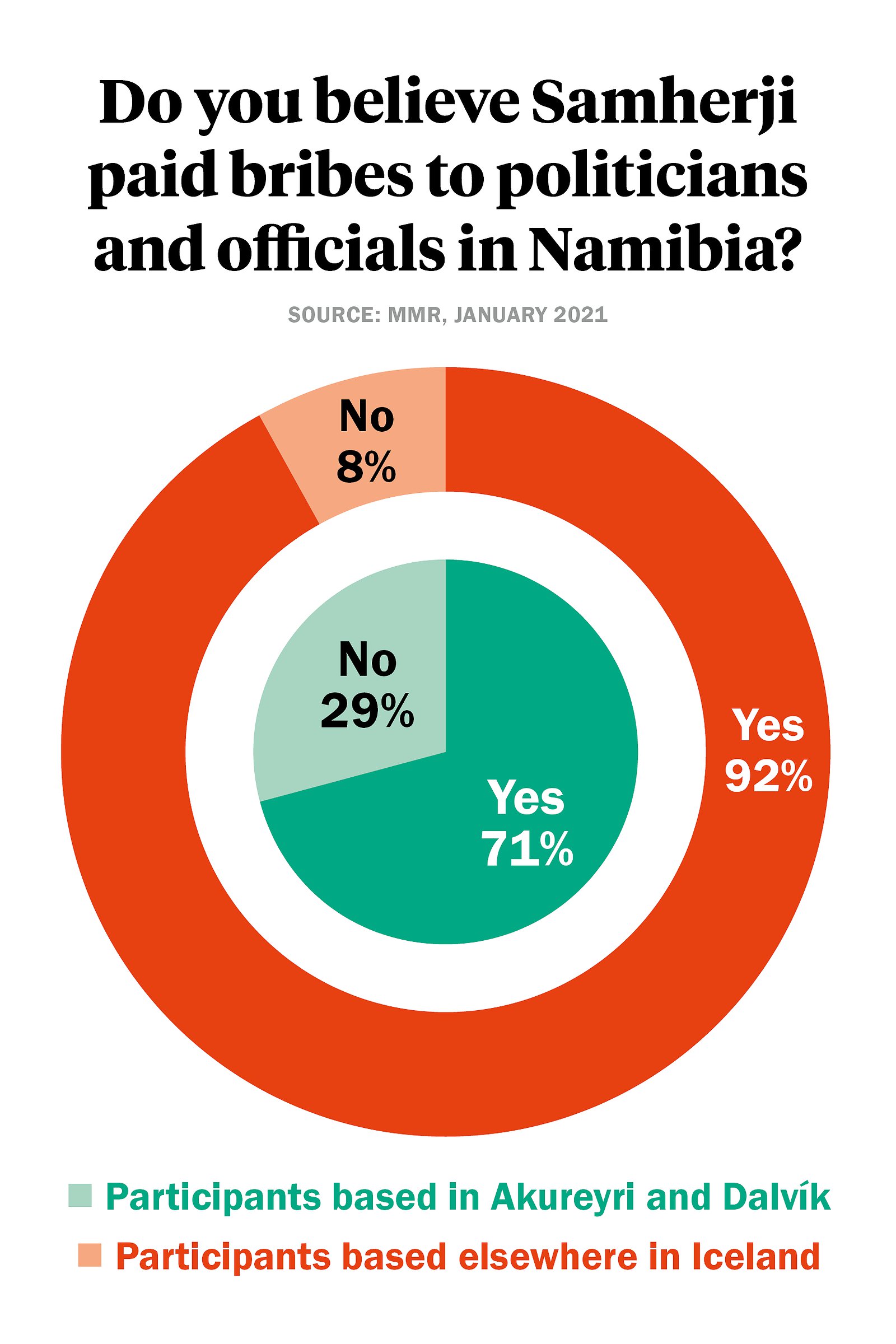
The Fishrot-case is the largest corruption case that has come up in the history of both Namibia and Iceland. The case is now being investigated in Namibia, where seven Namibian and three Icelandic suspects will be indicted for taking bribes, laundering money and other offences, and in Iceland where the investigation has not been concluded. In Iceland, six current and former employees have the legal status of suspects in the investigation, one of them is the CEO and founder of Samherji, Þorsteinn Már Baldvinsson.
The opinion survey is included in a series of news articles published by Stundin about Samherji's status in Iceland, especially in the towns of Akureyri and Dalvík, in the wake of the Fishrot-case. Some of the money that Samherji made on its fishing in Africa, first in Mauritania and Morocco and later in Namibia, was later reinvested in Iceland through various subsidiaries of Samherji, for example in Cyprus. There is therefore a direct link between Samherji's operations in Africa, where Samherji created between 10 to 40 percent of its revenue from 2007 to 2019, and its fishing operations in Iceland.
"Samherji firmly denies that its management ever intended for any subsidiary to engage in wrongful activity“
Samherji has denied the accusations
Samherji has denied the accusations of bribery even though the company's strategy in defending itself has changed significantly over the course of the last year: "Samherji firmly denies that its management ever intended for any subsidiary to engage in wrongful activity, including bribery or money laundering, in order to achieve benefits and will rigorously rebut any further allegation to this effect," the fishing company said in a statement last summer.
First after Wikileaks, the Icelandic investigative TV-program Kveikur, the Qatari TV-station Al Jazeera and Stundin reported about the bribe payments in November of 2019 Samherji tried to blame what happened in Namibia on its former manager in the country, Jóhannes Stefánsson, who is the whistle blower in the Fishrot case. The bribes reportedly amounted to more than 10 million U.S. dollars but that amount has risen significantly following the investigations into the case in Namibia.
Samherji did not use that tactic for long since the bribe payments continued long after Stefánsson left the company in 2016. The Icelandic fishing company now says that it paid some consultancy fees but categorically denies having paid bribes. Samherji has been using its homepage to publish its defence and refutations of the allegations in the Fishrot-case for the last months.
The company also made YouTube videos denying the allegations as well as attacking the state media company in Iceland, RUV, and its journalists who led the media's coverage of the Fishrot-case.
One implication of the results that the opinion survey shows it that Samherji appears to have been unsuccessful in its attempts to strongly affect the general opinion in Iceland regarding the company's actions in Namibia. Roughly 9 out of every 10 Icelanders believe that the stories about Samherji's bribe payments are true even though the company says that they are unfounded.
The difference between Akureyri and the rest of Iceland
Another implication of the survey is the obvious difference between people's opinion in Akureyri, the small town in the north of Iceland where Samherji was founded and the company has its headquarters, and in other parts of country. For example, "only" 71 percent of the inhabitants of Akureyri, and the adjacent fishing village of Dalvík where Samherji is the biggest employer, believe that the stories about the bribe payments are true. 29 percent of the population in Akureyri and Dalvík believes that Samherji did not pay bribes. This more than three times higher than in the rest of Iceland.
Samherji employs more than 500 people in Akureyri and Dalvík where it operates two fish factories. This is a significant number of jobs in a small, rural community of twenty-thousand inhabitants. For the last decade, Samherji has also donated around 685 million Icelandic krónur, the equivalent of 5 million U.S. dollars, to good causes in the region. It has funded sports clubs, given money to schools and hospitals and bought a new chairlift for the skiing resort in Akureyri.
Other results of the survey also support the claim that the opinions of the inhabitants of Akureyri and Dalvík are more positive than in the rest of Iceland. For example, 47 percent of the inhabitants say that their opinions on Samherji have not changed during the last two years, whereas only 28 percent of Icelanders in other parts of the island say that their opinion of Samherji has not changed. Similarly, 69 percent of Icelanders living outside of Akureyri and Dalvík say that their opinion on Samherji has worsened during the last two years, while 46 percent of the inhabitants in the two towns say that their views on the company have changed to the worse.
In this respect, the survey shows a significant difference between the groups, the residents of Akureyri and Dalvík on the one hand, and the residents of other parts of Iceland on the other, even though the majority of both groups believes that Samherji participated in the paying of bribes.
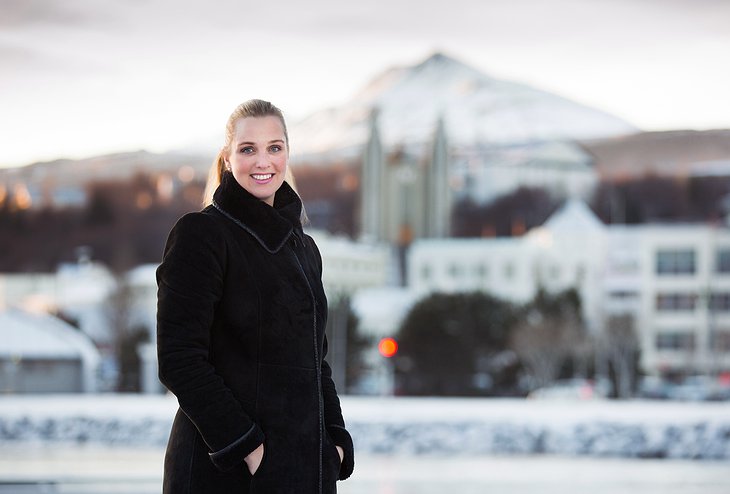
Fishrot has not changed the views of many local politicians
Even though the Fishrot-case in Nambia seems to have influenced public opinion in Iceland strongly it has not changed the views of many of the local politicians in Akureyri where Samherji is the largest privately owned employer. Only the University of Akureyri and the local hospital employ more people.
The mayor of Akureyri, Ásthildur Sturludóttir, says, for example, that the Fishrot-case has not made her change her opinion on Samherji. "I can’t say that it has but this is just an affair that I can’t go about having an opinion on. […] Of course I was shocked but this is just one affair," Sturludóttir says.
"Generally I believe that people fully trust Samherji“
One of municipal politicians in Akureyri, Þórhallur Jónsson, says also: "Samherji is a very good and strong company which plays a big part in the economic life in this area. Generally I believe that people fully trust Samherji and that this has not changed much following the Fishrot-case. I definitely do. My feeling is that people in this area are not ready to make a judgment and that they want to wait for result of the investigation."
Another politician in Akureyri, Halla Björk Reynisdóttir, says that her opinion on Samherji has not changed yet but that it might change, based on what the investigation will lead to.
"I think that people in general are saddened by this. But people are just waiting to see what the investigation will lead to and whether Samherji did the things that they are accused of doing. I hope that they will finish the investigation soon. Regarding my own personal opinion of Samherji it has not changed but my final opinion will be based on the result of the investigation," Halla Björk says.
As is evident from the words of local politicans in Akureyri then Samherji is an important company in the community. What is also evident from their words is that the results of investigations of the Fishrot case in Iceland, and possibly also Namibia, is likely to have further repercussions for the company's status in its home community of Akureyri.
Sjá meira





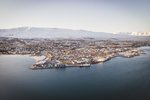
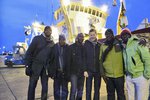

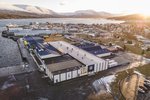
















































Athugasemdir